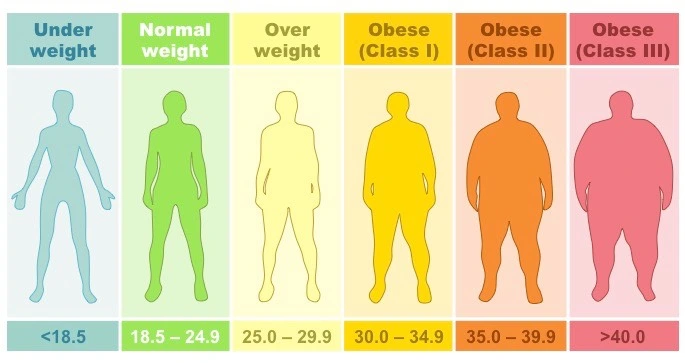According to the National Institutes of Health, BMI is an estimate of body fat and a good gauge of your risk for diseases that can occur with more body fat.
The higher your BMI, the higher your risk for certain diseases such as heart disease, high blood pressure, type 2 diabetes, gallstones, breathing problems, and certain cancers.

Your height
According to Nick Trefethen, a professor of numerical analysis at the University of Oxford, BMI overexaggerates weight in tall people and underexaggerates weight in short people.
The professor wrote a letter to The Economist in 2013 explaining that because BMI squares height, it makes tall people think they are fatter and short people think they are thinner.
Your ethnicity
Researcher and editor of the International Journal of Obesity, Richard L. Atkinson, MD, told WebMD that African Americans are less likely to have fat around their abdomen (which is indicative of greater health risks) and more muscle mass.
In addition, Studies have also shown that people of Asian descent have a greater risk of developing type 2 diabetes at a lower BMI, while African Americans may have a higher BMI without the health risks that go along with obesity.
Also Read : KEWOPA Sheds Light on Obstetric Violence against Women
Depends on where your fat builds up
Not all fat is equal. The fat that builds up around your waist and belly is more dangerous to you, because that fat surrounds your organs, whereas the fat around your thighs and hips has less effect on whether you’ll develop diabetes or heart disease.

“(BMI) also does not tell us the distribution of body fat in a person,” Eva Tseng, MD, MPH, an Assistant Professor of Medicine at Johns Hopkins, told PopSugar.
“We know that people with more central or abdominal adiposity [obesity] have a higher risk of premature cardiovascular disease, diabetes, and death compared to people with a similar BMI but less abdominal adiposity.”
Having high muscle mass
Muscles are denser and heavier than body fat, so if you have high muscle mass, your BMI might indicate that you’re overweight or obese. BMI treats a person’s weight as one entity, instead of accounting for muscles, bone density and fat, which all make up a person’s weight.
Subscribe to our YouTube channel Switch TV
















